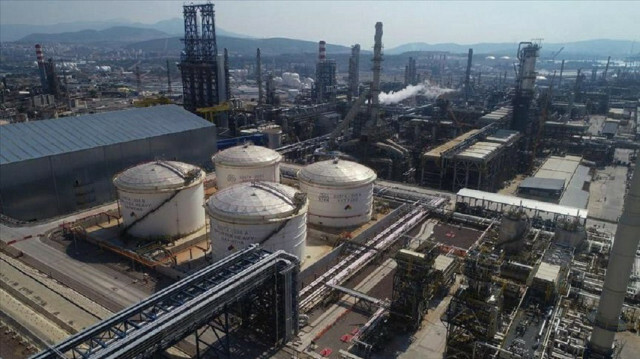
Restoring storm-damaged berths may take more than a month, says CPC operators
The price of Brent oil hit $120 dollars a barrel over reports that Russian and Kazakhstan oil exports via the Caspian Pipeline Consortium (CPC) from the Black Sea will be halted for one and a half months.
International benchmark Brent crude was trading at $120.50 per barrel at 1425 GMT for a 4.34% increase after closing the previous session at $115.48 a barrel.
American benchmark West Texas Intermediate (WTI) was at $113.61 per barrel at the same time for a 3.97% gain after the previous closed at $109.27 a barrel.
The CPC outage came after Russia warned on Tuesday that storm-damaged berths might reduce oil flow by up to 1 million barrels per day (bpd), or 1% of global oil production.
The one-month disruption also came after the US said it is working on new sanctions on Russia, which may include EU bans on Russian oil.
National Security Advisor Jake Sullivan said that President Joe Biden "will announce the new economic penalties as part of a coordinated action with US partners and will further tighten existing sanctions to crack down on "evasion, and to ensure robust enforcement."
Biden is due to participate in a series of meetings in Brussels beginning March 24, including a NATO summit and European Council meeting, to discuss ongoing western concerns on Russia's war in Ukraine.
However, not all EU countries are eager to bring sanctions on Russia's oil and gas sector, as Germany on Tuesday reiterated its opposition to energy sanctions on Russia, warning that it could have negative consequences for European economies.
German Chancellor Olaf Scholz said European countries should carefully assess the proposed measures.
"Sanctions should have an effect on the aggressor, but at the same time, we should make sure that they have minimal repercussions for our economies, and we should be able to uphold them," he said.
Scholz underlined that not only Germany but also many other EU countries still need to buy their gas, oil and coal from Russia, as they have no other alternatives in the short term.
- Ruble payments instead of dollar for 'unfriendly countries'
Price hikes in Brent oil were further supported after Russian President Vladimir Putin said he instructed the government to transfer into rubles payments for Russia's energy resources coming from "unfriendly countries."
Speaking at a meeting with the government in Moscow, Putin said after the US and EU sanctioned the Russian state debt in dollars and euros, which in economic terms means they announced a default on their financial liabilities to Russia, there is no longer any reason to continue to use these currencies.
Hello, the comments you share on our site are a valuable resource for other users. Please respect other users and different opinions. Do not use rude, offensive, derogatory, or discriminatory language.
The floor is all yours.








